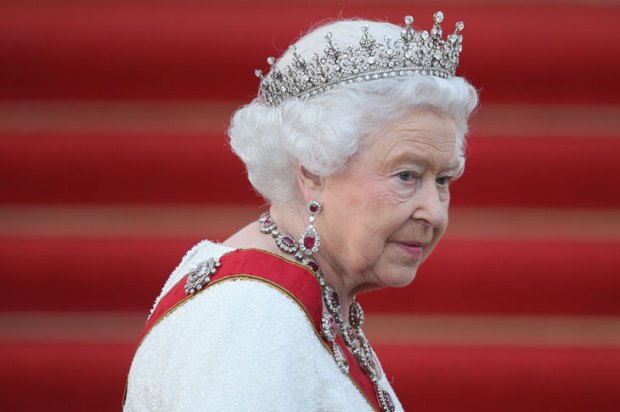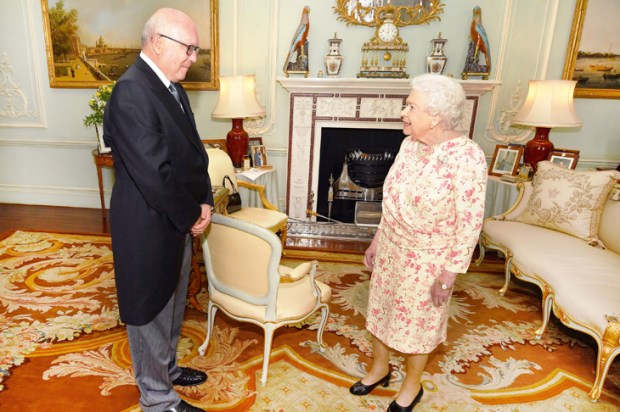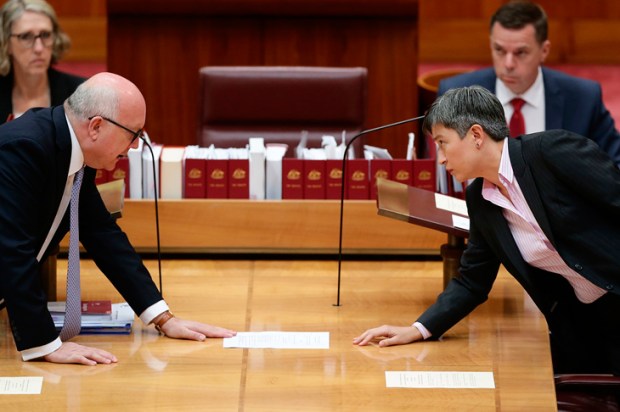For the past three weeks, London has been experiencing a glorious early summer: piercing blue skies, long warm evenings, the parks and gardens as beautiful as I have ever seen them. Being a High Commissioner is a bit like being a minister, without parliament – endless meetings, briefings, official functions and speeches. At an uncertain time for Britain, with the terms of Brexit still to be settled and the British looking to re-engage more closely with like-minded old friends, the goodwill towards Australia is palpable.
My first official visitor is Martin Parkinson, the Secretary of PM&C, whom I accompany as he does the rounds of senior officials – among them the Head of the Home Civil Service Sir Jeremy Heywood, the Permanent Secretary of the Cabinet Office John Manzoni and the Governor of the Bank of England Mark Carney. Inevitably, discussion about Brexit dominates all else; the entire political and bureaucratic establishment is consumed by it. It is impossible to get past the second sentence of any conversation before somebody utters the words ‘… after Brexit…’.
An early and eagerly anticipated appointment is for lunch at The Spectator. The Spectator lunch is an institution among the political classes in this country and I am not disappointed. The offices of The Spectator, in a narrow street in the heart of Westminster, are every bit as Edwardian as I could have hoped for. The walls of the dining room are decorated with priceless framed memorabilia, including a recent photograph of the Queen stepping out of her helicopter, a copy of The Speccie clearly in view.
The jewel of the collection is a letter to the editor, complaining about their harassment by Prussian spies in London, signed ‘Charles Marx, Fredc. Engels.’ ‘We are at a loss to conceive,’ they protest, ‘in what respect our presence in London can possibly come into collision with the preservation of the peace and tranquillity of these realms.’ The letter is dated 14 June 1850 – the very month that the first English translation of The Communist Manifesto was published in London, inciting a very great deal of disturbance to ‘the peace and tranquillity of these realms’. Those Prussian spies were onto something.
I am seated between the editor Fraser Nelson and the alarmingly youthful James Forsyth, recently publicly described by Theresa May as an extra member of the Cabinet, in none-too-amused acknowledgment that his familiarity with Cabinet discussions is often so intimate that it seems as if he has a seat at the table. Naturally the talk is of Brexit, which the Chatham House Rule forbids me from sharing.
However I am sure I may share with Australian readers the great enthusiasm for Rowan Dean of Andrew Neil and his colleagues. At a time when sales of news magazines are in freefall, The Spectator’s circulation is rising in both the UK and Australia – due, no doubt, to the fact that it is such a bracing counterpoint to the unreadably boring PC pieties which pass for so much of political commentary today.
I catch up for dinner with Latika Bourke and Annabel Crabb, who is in London to cover the royal wedding. By pure chance, we run into Antony Green, in Europe on a cycling holiday. We spend an enjoyable evening swapping political anecdotes and trying to outbid each other with recondite electoral facts. No prizes for guessing whose knowledge of electoral trivia surpasses all others’. Nerd heaven.
It is perhaps only once every couple of decades that the Royal Ballet reimagines part of its core repertoire, so a new production of Swan Lake is a very big event indeed. Li Cunxin, the director of the Queensland Ballet, is in town and invites me to accompany him to the opening night. It is a stupendous performance, attracting justifiably rave reviews. The Russian superstar Vadim Muntagirov is stunning as Siegfried. The role of his consigliere Benno is danced by Alexander Campbell, one of the two Australians the Royal Ballet numbers among its 16 principal dancers.
Sir John Betjeman published a memoir – in verse – of his Oxford days, which he called Summoned by Bells. When last I lived in England as a student, almost four decades ago, I kept the time by the tolling of the Magdalen Tower bell. Now, as High Commissioner, once again I find myself working with the sound of bells in the background: my office overlooks St Clement Danes church at the eastern end of The Strand, whose bells – immortalised in the nursery rhyme – peal throughout the day. The gentle chimes of the bells of St Clement’s have given my first three weeks here a nostalgic, Betjemanesque feel.
Got something to add? Join the discussion and comment below.
Get 10 issues for just $10
Subscribe to The Spectator Australia today for the next 10 magazine issues, plus full online access, for just $10.
You might disagree with half of it, but you’ll enjoy reading all of it. Try your first month for free, then just $2 a week for the remainder of your first year.











Comments
Don't miss out
Join the conversation with other Spectator Australia readers. Subscribe to leave a comment.
SUBSCRIBEAlready a subscriber? Log in